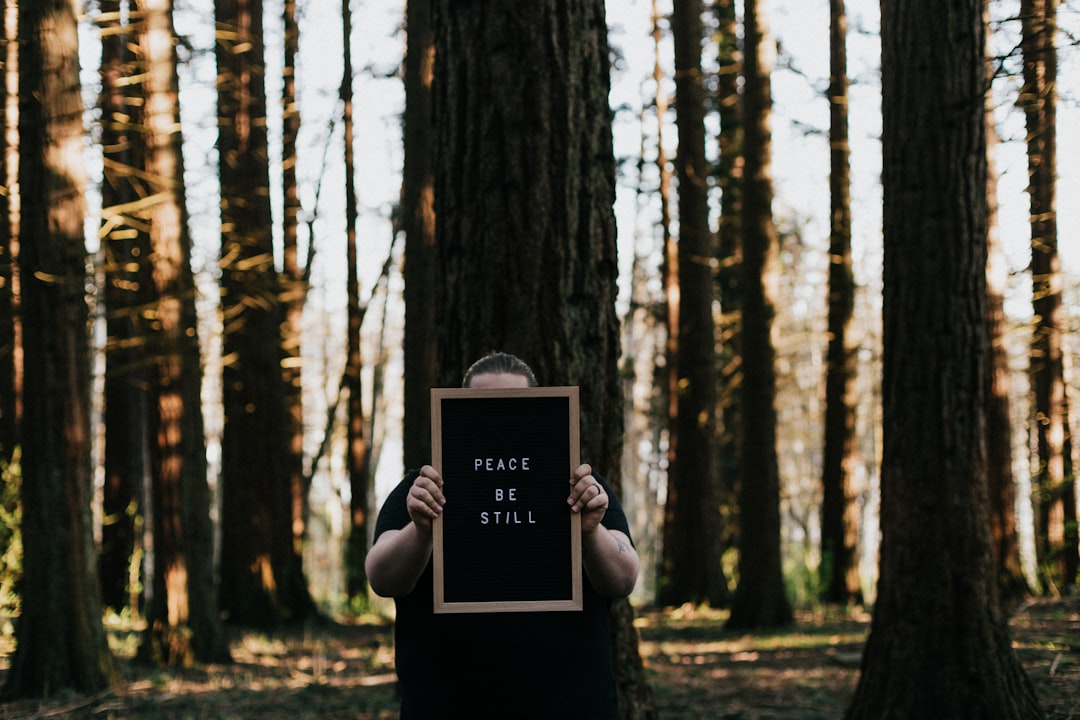Welcome, my fellow hustlers! It’s 2021, and the hustle culture is more prominent than ever. We’re constantly being told to hustle harder, faster, and smarter in order to achieve success. Social media is flooded with motivational quotes about working harder and hustling 24/7. We get it, we want to succeed, we want to accomplish every task, reach every goal.
But, let’s be real, sometimes it feels like enough is never enough. It’s not enough to work an 8-hour shift, to follow a to-do list, or to complete our daily tasks. Saying “no” to additional responsibilities or rejecting an offer to take on a new project can generate feelings of guilt, fear of judgment, fear of not keeping up, fear of falling behind the competition.
Yet, we tend to overlook the importance of setting healthy boundaries and saying “no.” The work-life balance is not just about grinding 24/7. Saying “no” can be an affirmation of self-respect, a sign of self-worth, and a means of reducing stress.
So, let’s break the stigma of saying “no” in hustling culture. Let’s explore the importance of boundaries, the cost of overcommitment, the decision-making process of saying “no,” and how we can communicate effectively while prioritizing self-care.
Let’s work smarter, not harder, away from the pressure of constantly saying “yes.” And remember, there is power in the word “no.”
The Importance of Boundaries: Why Saying No Establishes Respect
In today’s fast-paced world, there is an unspoken expectation to always say yes. You may feel pressure to do more and be more, to take on every project, attend every event, and please everyone around you. This is what many people refer to as hustle culture, a mentality that glorifies overworking and burnout as a badge of honor. But in reality, constantly saying yes to everything can have damaging effects on your mental and physical health.
It is time to shift the conversation from overcommitment to boundary-setting. Saying no is not a sign of weakness or incompetence, but rather a demonstration of self-respect and self-care. Establishing boundaries in your personal and professional life can help you prioritize the activities that are truly important to you, allow you to focus more on those tasks, and prevent burnout.
Saying no can also communicate that you value your time and energy, and that you do not want to engage in activities or projects that will not benefit you in the long run. It can also demonstrate to others that you are confident in your abilities and that you are not afraid to stand up for yourself in a respectful way.
Setting boundaries can be challenging, especially if you struggle with people-pleasing tendencies. However, it is important to remember that you do not have to say yes to everything in order to be successful. In fact, you may find that by saying no to certain opportunities or projects, you open up space for new and more fulfilling experiences.
Establishing boundaries shows respect for yourself and for the people around you. It communicates your priorities and can help you build stronger and more authentic relationships. So don’t be afraid to say no, and don’t let hustle culture make you feel guilty for setting realistic limits. By doing so, you can prioritize your mental and physical health and pave the way for a more fulfilling and successful life.
It can also demonstrate to others that you are confident in your abilities and that you are not afraid to stand up for yourself in a respectful way.
The Cost of Saying Yes: How Overcommitment Leads to Burnout
As ambitious and determined individuals, it can often feel like saying yes to every opportunity that comes our way is the key to success. After all, who doesn’t want to be seen as a go-getter who can handle anything that comes their way?
But the reality is that overcommitment can lead to burnout. When we say yes to everything and take on too much, we stretch ourselves too thin and start to lose focus on what’s truly important. We become stressed, anxious, and overwhelmed, and our work suffers as a result.
Additionally, when we say yes to every opportunity that comes our way, we risk neglecting our personal lives and relationships outside of work. We sacrifice time with loved ones and our own self-care, which ultimately leaves us feeling unfulfilled and lacking in the areas that truly matter.
It’s important to recognize that saying no is not a sign of weakness or a lack of ambition. In fact, it’s quite the opposite. Saying no allows us to establish boundaries, prioritize our goals, and give our all to the things we truly care about. By saying no to opportunities that don’t align with our values and priorities, we free up our time and energy to focus on the things that do.
In order to avoid burnout from overcommitment, it’s necessary to know when to say no. This requires a deep understanding of our values and priorities, as well as the ability to recognize when saying yes will only lead to unnecessary stress and fatigue. By practicing self-awareness and knowing when to say no, we can achieve success and fulfillment without sacrificing our mental and physical well-being.
By saying no to opportunities that don’t align with our values and priorities, we free up our time and energy to focus on the things that do.
The Decision-Making Process: Knowing When to Say No
Are you constantly finding yourself overwhelmed and overcommitted? Do you struggle to keep up with the demands of others while neglecting your own needs? If so, it’s time to start mastering the art of saying No.
But saying No is easier said than done. It requires a clear understanding of your values, priorities, and goals. It means recognizing your limitations and not being afraid to set boundaries. And it requires a thoughtful decision-making process that balances short-term gains with long-term consequences.
The first step in knowing when to say No is to assess the situation at hand. What are the expectations being placed upon you? Are they realistic and feasible given the time and resources you have available? What are the potential costs and benefits of saying Yes? How will it impact your personal and professional life?
Once you have gathered this information, it’s time to evaluate your options. Consider the pros and cons of saying Yes versus saying No. Are the rewards worth the sacrifices? Are the risks too high? This analysis should be guided by your personal priorities and values.
If the decision is not clear, seek advice from people you trust. Having an objective perspective from someone who has experience in similar situations can be valuable in making a well-informed decision.
Ultimately, the decision to say No should be based on a sound assessment of the situation and a clear understanding of your priorities and values. By doing so, you are demonstrating respect for yourself and others, setting healthy boundaries, and preventing burnout.
Successful people know when to say No. They recognize that their time and energy are valuable resources that should be invested wisely. They understand that saying No allows them to focus on what really matters, to pursue their goals with passion and determination, and to achieve success and fulfillment in all areas of their lives.
Consider the pros and cons of saying Yes versus saying No.
Communicating Effectively: Saying No Without Damaging Relationships
As a person who is constantly striving to achieve goals and make a name for themselves, the pressure to say yes to every opportunity that comes your way can be overwhelming. However, it is essential to remember that your time and energy are limited resources. While saying yes to everything may give you short-term gains, it can ultimately lead to burnout and negatively impact your mental health.
But saying no can be tricky. You don’t want to come across as uninterested or ungrateful for the opportunity presented to you. So, how do you communicate effectively and respectfully but still effectively say no?
First, acknowledge the request, and thank the person for considering you. Let them know that you appreciate the opportunity but that you have other commitments that you have to prioritize at this time. Be honest and straightforward in your response, and don’t offer an explanation unless one is required.
It’s also crucial to avoid using non-committal language. Saying “maybe” or “we’ll see” can give the impression that you are indecisive or are simply trying to avoid giving a clear answer. This can cause stress and confusion for the person asking and lead them to follow up with you, which adds to your stress.
Lastly, offering an alternative solution shows that you are genuinely interested in helping and collaborative efforts. Instead of a straight no, suggest connecting with them later or offering availability for the next opportunity. That way, you aren’t closing the door entirely and can still maintain a healthy relationship with the requester.
Saying no can feel uncomfortable, but it’s essential for maintaining mental well-being, productivity, and growth. By communicating effectively, respectfully, and straightforwardly, you can say no without damaging relationships and reap the benefits of prioritizing your time and energy. Remember, every no is an opportunity to say yes to something that aligns with your values and goals!
Be honest and straightforward in your response, and don’t offer an explanation unless one is required.
Prioritizing Self-Care: The Benefits of Saying No for Mental Health
As we’ve discussed so far, saying no can establish boundaries and prevent overcommitment, but its benefits go even deeper than that. Prioritizing self-care and mental health is crucial for achieving success and fulfillment in life, and saying no can play a major role in this pursuit.
When we constantly say yes to every opportunity, task, or request that comes our way, we are putting ourselves in a position where we may become overwhelmed, stressed, and even burned out. We begin to neglect our own well-being and solely focus on meeting the needs and demands of others.
This can have negative consequences on our mental health, leading to feelings of anxiety, depression, and even physical health issues. However, saying no to certain obligations or responsibilities can provide us with the time and space we need to prioritize our own self-care and mental health.
By saying no, we can carve out time for activities that bring us joy, relaxation, and rejuvenation, such as exercise, meditation, reading, or spending time with loved ones. We can also set boundaries and limits on when we are available to others, reducing our stress levels and increasing our overall sense of well-being.
Prioritizing self-care doesn’t mean we are selfish or lazy; it means we are taking responsibility for our own well-being and acknowledging our limitations. By doing so, we become happier, more productive, and more resilient in the face of challenges.
So next time you’re faced with a request or opportunity that doesn’t align with your values, schedule, or goals, don’t be afraid to say no. Remember that prioritizing your own self-care is key to achieving success and fulfillment in all areas of your life.
Prioritizing self-care doesn’t mean we are selfish or lazy; it means we are taking responsibility for our own well-being and acknowledging our limitations.
Conclusion: How Saying No Enables Success and Fulfillment
As we wrap up our discussion on the importance of saying no, it’s important to reiterate that inculcating the habit of saying no can actually pave the way for achieving success, happiness, and fulfillment in life.
Hustle culture often paints a picture of a successful person as someone who never says no, works 24/7, and never takes a break. However, this is far from the truth. Saying no not only establishes respect but also helps to prevent overcommitment leading to burnout. Making the right decision in terms of what you say yes to and what you say no to, can lead to more productive and efficient use of your time, further contributing to success.
It can be tough to say no, however, communicating effectively can help to maintain relationships without causing any damage. Self-care should always be a priority, and saying no can be the perfect opportunity to take some time away from work and focus on yourself, contributing towards mental and physical health.
Saying no is not a sign of weakness, but rather a statement of wisdom and strength. Rejecting opportunities that do not align with your values, goals, or beliefs allows you to give your best to everything that you say yes to.
In conclusion, saying no can enable success and fulfillment by providing a balanced life and making the most out of opportunities that actually matter. Remember, the ability to say no respectfully, confidently, and effectively requires practice and discipline, but it’s never too late to start putting the power in the magic of no!





